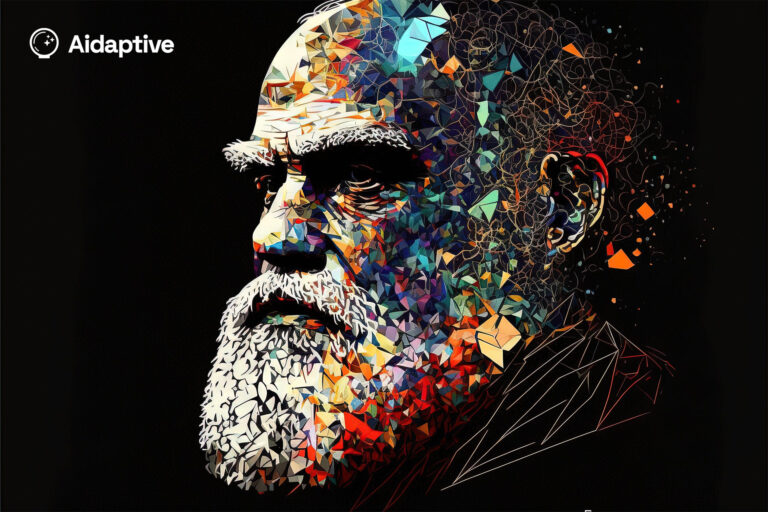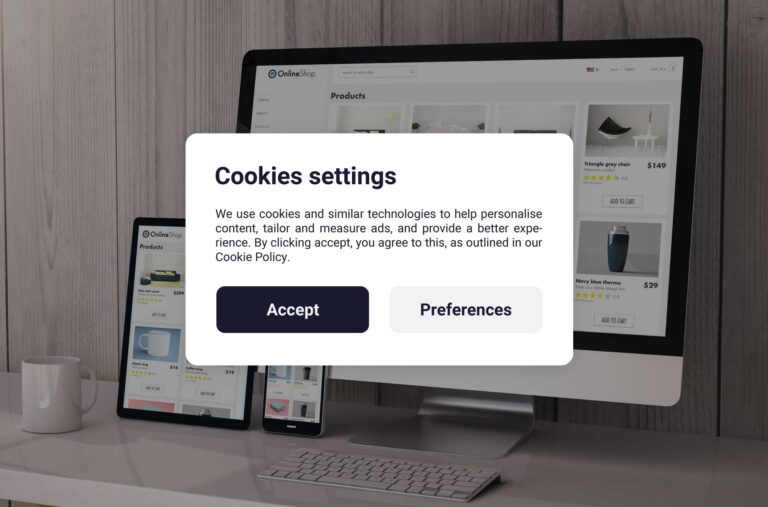Extending your eCommerce functionality
Shopify is the go-to eCommerce platform for getting started quickly, scaling up without much effort, and immediately enabling the most important features of building a DTC eCommerce business.
However, while the platform is robust and attends to many entrepreneurs’ and business owners’ needs, it can only do some for some.
Harley Finkelstein, President of Shopify, shares the ideology behind the products and features that they prioritize: “We create what most merchants need most of the time.”
They aim to serve the most critical needs of the 90% of stores built on their platform globally.
Does that mean you’re out of luck if Shopify doesn’t do it natively? Harley says no: “Hopefully, you’re not on your own for anything. That’s why Shopify built an app store.”
And we all benefit from it!
Shopify Apps
The Shopify App Store has grown tremendously over the past few years.
The app store generated $430 million in revenue in 2019 – increasing to $675 million in 2021 and continuing up. The number of apps has well-surpassed 8000!
These various applications are helping merchants with everything from the most mundane operational tasks to highly creative optimization using AI and machine learning.
More than 87% of merchants use Shopify apps; the average number is six apps per store.
So what are the best apps that merchants really should be using?
Style Factory lists the top 10 most downloaded, according to Shopify itself.
And you can browse the Shopify App Store to see what’s trending and popular for dropshipping, tracking, taxes, social media, and countless other use cases.
But what we really want to know is: what are the best-in-class Apps for the critical use cases of an online storefront? And do they play nicely together?
Here is a list of Apps to install and thank us later!
Critical Use Cases for Apps
Communications
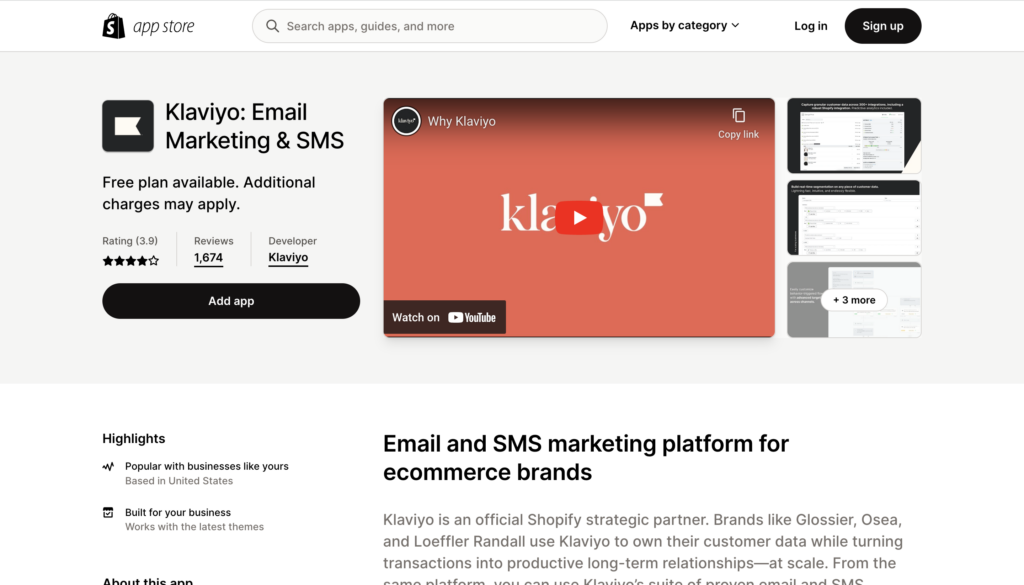
Klaviyo means DTC email. “There’s no better ESP than Klaviyo when it comes to eCommerce and online retail.” – Nik Sharma.
As an email service provider (ESP), Klaviyo checks all the boxes for functionality, deliverability, and user interface.
Further, it creates a seamless way to collect data (and metadata) about customers that enable huge downstream benefits for segmenting campaigns, building your customer list, and understanding your database.
While Mailchimp and other smaller players can do part of the job, take into account the impact of a really great tool for a channel as important as Email.
Jones Road Beauty is a happy customer that uses pop-ups to collect more email addresses for anonymous site visitors but also capitalizes on the shopper data to personalize subject lines for emails.
Postscript has become one of the most popular SMS software on the Shopify App Store.
The core functionality is similar across tools – like Yotpo, Automizely, and even Klaviyo’s SMS tool. But Postscript has the customer support and constant iteration to make SMS easier and quicker for merchants.
SMS is one of the critical touchpoints along the shopping journey to bump up reminders and bring back shoppers for promotions. Using SMS gives you a vehicle for incredible growth.
Customer Service
While a tiny store may be able to handle tickets via Gmail for a while, any scale means ticket handling.
Having been a Zendesk admin, I can tell you that service software can be very tough to wrangle.
Gorgias is the top-tier, well loved customer service tool for DTC stores today.
Gorgias moves fast, integrates quickly, and focuses on saving time.
With 11K customers and counting, they’ve clearly done something right by the community.
CROSSNET is a happy customer that claims millions of dollars in revenues from using Gorgias.
Returns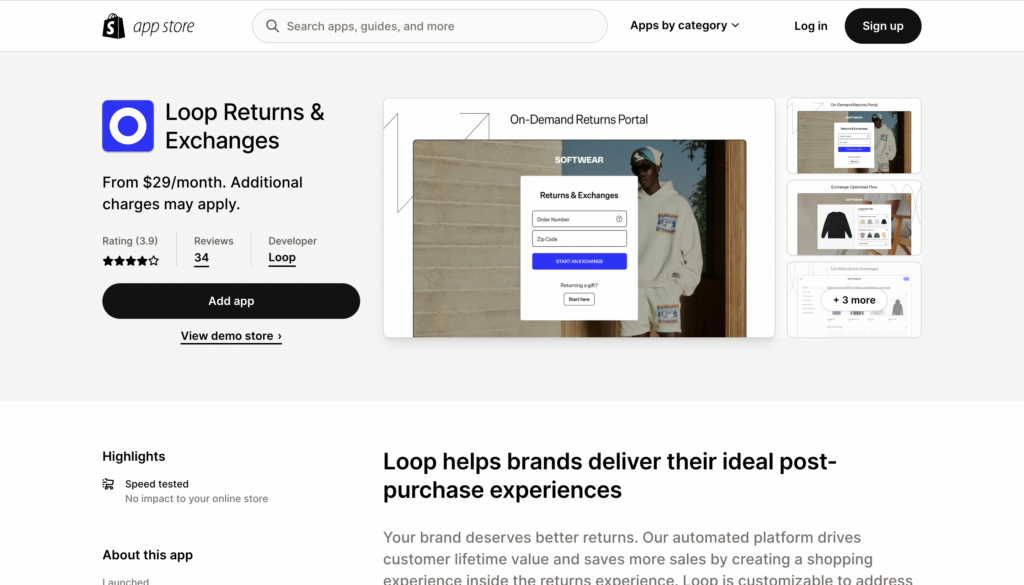
Loop has become the go-to Shopify app for managing returns.
For your business, returns may fall under the “customer service” bucket. But at a particular scale, it really pays dividends to automate the entire process.
With Loop, customers enter their order number and can swap items, change sizes, return flat-out, and manage the ship-back process.
If your return rate is over ~15%, the ROI for Loop is there.
Madhappy is a brand that has benefited tremendously from Loop’s return and exchange management software.
Reviews
Okendo is a review-management platform, that lets merchants benefit from the power of social proof from the voice of happy customers.
It enables robust surveying to keep track of NPS (net promoter score) and a seamless way to publish reviews and user-generated content (UGC) to help drive more conversions. This includes photo reviews to put a face to the name!
Okendo Reviews drives millions in revenue for customers, their site boasts a +20% increase in AOV after implementation.
And luckily, it fits into the ecosystem with other apps, so merchants can plug in other powerful functionality to compound their store’s performance.
For a great visual example, see the Muir Way store: this 3D map’s reviews are summarized, have pictures, and help to really sell the product.
Tracking fundamentals
Google Shopping is a Shopify app that you need to have installed to integrate with Google Analytics and Google Ads.
Similarly, social media apps and other pixel tracking apps can simplify the job of tracking activity and attribution back to your ads, plus enable an easier time making social-media sales.
Elevar is one of the most highly recommended pixel management tools on the app store today.
Analytics
While not an “app” on the App Store, Triple Whale has become one of the most widely regarded analytics platforms for Shopify. Given Shopify’s relatively weak reports & dashboards functionality (for those who want all the details), it’s a game changer.
It helps solve the tricky problem around attribution with their proprietary pixel technology, and they have great content to help merchants improve across the board.
Similarly, Northbeam also enables powerful reporting and attribution, especially on multiple channels.
Retail + Amazon + paid ads across multiple social platforms + UGC = a need for centralized attribution tracking.
The Ridge sells their wallets, and personal organization accessories cross-channel and has had tremendous success using Northbeam to manage the chaos.
Optimization
The landscape of optimization software on the Shopify App Store is deep and wide.
But it’s necessary. Why? Because the native Shopify functionality doesn’t cut it to drive traffic down the funnel.
For example, website search natively is clunky, inaccurate, and lacking sophistication.
Out-of-the-box product recommendations hardly exist – and are based on elementary logic, like “same category” or “best sellers.”
Optimization for DTC is all about dynamic updates and rapid testing and iterating. To make a Shopify store more dynamic, you need apps.
Personalization
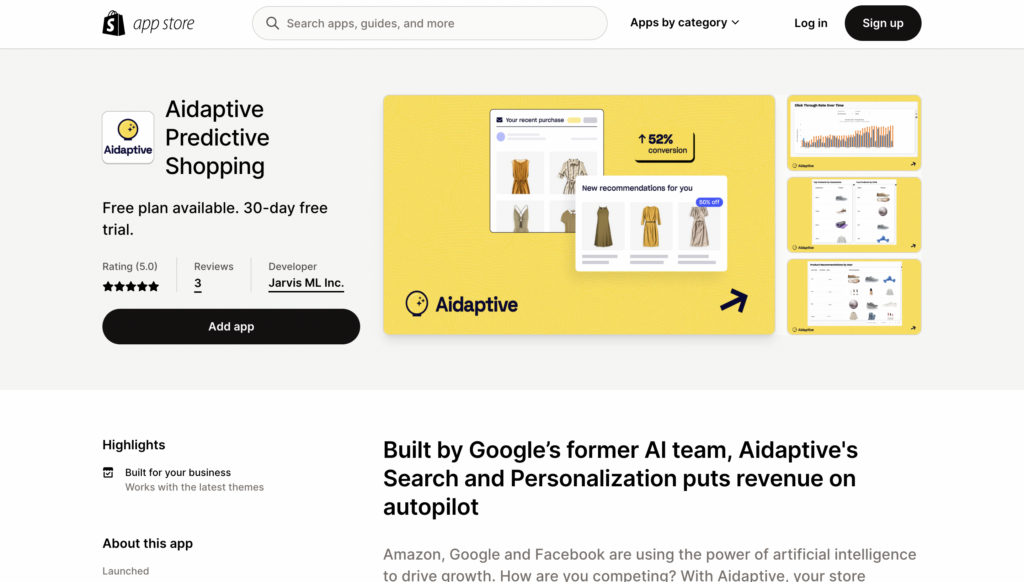
Personalization apps come in different shapes and sizes.
One consideration is: how well does the personalization app work with the other core apps in your tech stack?
For example:
- Can you use the personalization app to dynamically segment and tailor content with Klaviyo emails and Postscript SMS?
- Does the personalization app utilize the customer reviews data from Okendo? Will it consider the Returns information processed through Loop to optimize further?
- Will product recommendations be based on 1:1 personalization data versus a generic product-to-product similarity?
With countless personalization tools on the app store, the value is understood. These apps create better customer engagement and drive more conversions down the funnel.
We recommend the Aidaptive app for personalizing website experiences. It plays nicely with other Shopify apps, uses data from across your store, and can push personalized content into direct marketing campaigns.
Product Recommendations & Upsells
Many product recommendations suck. In fact, here is an article detailing 12 core reasons that status quo product rec apps struggle to add value to DTC merchants.
Product recommendations drive product discovery that grows conversions; but also enables visibility into upsell opportunities – which increases AOV and LTV in the long term.
Apps like Slidecart allow merchants to add last minute add-ons to a user’s shopping bag before they checkout.
But there are many flavors of product recommendations (e.g., top sellers, 1:1 relevant recommendations, frequently purchased together, etc.). Plus, merchants have gotten very creative with the functionality and placement of these recs.
We recommend the Aidaptive product recommendation app to intelligently serve the right products to the right person at the right time and place. It uses AI and machine learning to improve and deliver the best results over time.
It helps get more products in the cart and uses historical data to recommend what someone might want as a complimentary item. It also integrates nicely with Postscript and Klaviyo to scale those recommendations to other channels.
Site Search
Search is a massive driver of revenue for direct-to-consumer websites.
30% of visitors use site search, according to a study by Baymard Institute. They found that visitors who use the search feature are more likely to convert than those who don’t, with a conversion rate of 4.63% compared to 2.77%.
That is 67% higher!
So having the right app on your Shopify store can make a huge difference.
When you look up “search and discovery,” the Shopify App Store returns 191 apps.
- Some of those apps have search as a feature of a much larger suite of products.
- Some apps provide enhanced functionality – such as better filtering, image previews, and suggested searches.
- Others still focus on the search results, improving the core functionality to match the intelligence and personalization of Google Search.
Aidaptive’s predictive search extends search functionality with better querying, a more robust underlying search engine, and 1:1 personalized results to get shoppers to the products they want more quickly.
Aidaptive predictive search fits into the puzzle of other Shopify apps with a quick, lightweight integration that works with other functionality without bogging down your site.
Conclusion
Shopify apps are critical for modern merchants. They enable so much additional functionality we’d be lost without many of these tools.
However, there are so many that it pays to be discerning about what fits best with your store’s needs – based on SKU count, daily transactions, and website complexity.
The apps that work well with other popular apps are the ones that can compound the impact and limit side effects.

